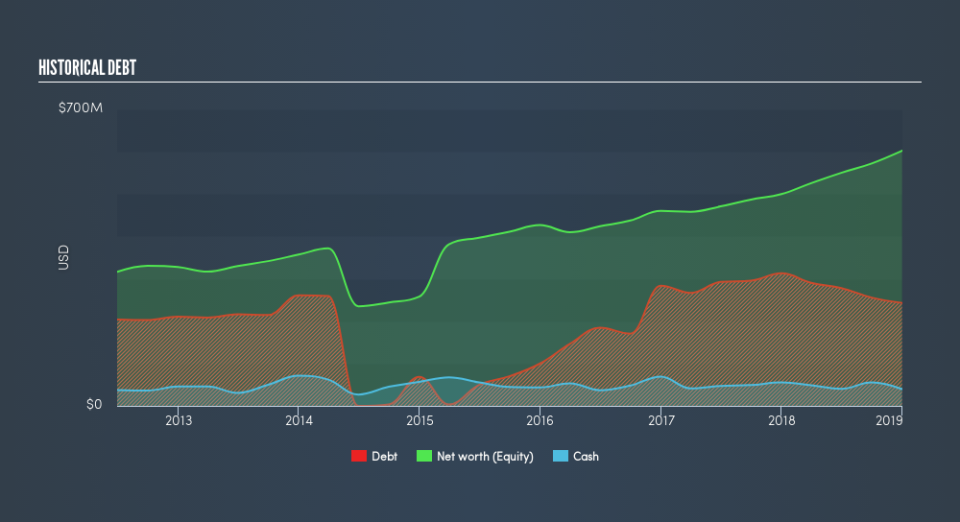What Does The Ensign Group, Inc.'s (NASDAQ:ENSG) Balance Sheet Tell Us About It?

While small-cap stocks, such as The Ensign Group, Inc. (NASDAQ:ENSG) with its market cap of US$2.7b, are popular for their explosive growth, investors should also be aware of their balance sheet to judge whether the company can survive a downturn. Evaluating financial health as part of your investment thesis is essential, since poor capital management may bring about bankruptcies, which occur at a higher rate for small-caps. The following basic checks can help you get a picture of the company's balance sheet strength. Nevertheless, this is just a partial view of the stock, and I’d encourage you to dig deeper yourself into ENSG here.
ENSG’s Debt (And Cash Flows)
Over the past year, ENSG has reduced its debt from US$313m to US$243m – this includes long-term debt. With this debt repayment, ENSG currently has US$40m remaining in cash and short-term investments to keep the business going. Moreover, ENSG has generated US$210m in operating cash flow in the last twelve months, leading to an operating cash to total debt ratio of 86%, indicating that ENSG’s debt is appropriately covered by operating cash.
Can ENSG pay its short-term liabilities?
At the current liabilities level of US$269m, the company has been able to meet these commitments with a current assets level of US$348m, leading to a 1.29x current account ratio. The current ratio is the number you get when you divide current assets by current liabilities. Generally, for Healthcare companies, this is a reasonable ratio since there is a bit of a cash buffer without leaving too much capital in a low-return environment.
Is ENSG’s debt level acceptable?
ENSG is a relatively highly levered company with a debt-to-equity of 40%. This is a bit unusual for a small-cap stock, since they generally have a harder time borrowing than large more established companies. No matter how high the company’s debt, if it can easily cover the interest payments, it’s considered to be efficient with its use of excess leverage. A company generating earnings before interest and tax (EBIT) at least three times its net interest payments is considered financially sound. In ENSG's case, the ratio of 10.36x suggests that interest is comfortably covered, which means that lenders may be willing to lend out more funding as ENSG’s high interest coverage is seen as responsible and safe practice.
Next Steps:
ENSG’s high cash coverage means that, although its debt levels are high, the company is able to utilise its borrowings efficiently in order to generate cash flow. Since there is also no concerns around ENSG's liquidity needs, this may be its optimal capital structure for the time being. This is only a rough assessment of financial health, and I'm sure ENSG has company-specific issues impacting its capital structure decisions. I suggest you continue to research Ensign Group to get a better picture of the small-cap by looking at:
Future Outlook: What are well-informed industry analysts predicting for ENSG’s future growth? Take a look at our free research report of analyst consensus for ENSG’s outlook.
Valuation: What is ENSG worth today? Is the stock undervalued, even when its growth outlook is factored into its intrinsic value? The intrinsic value infographic in our free research report helps visualize whether ENSG is currently mispriced by the market.
Other High-Performing Stocks: Are there other stocks that provide better prospects with proven track records? Explore our free list of these great stocks here.
We aim to bring you long-term focused research analysis driven by fundamental data. Note that our analysis may not factor in the latest price-sensitive company announcements or qualitative material.
If you spot an error that warrants correction, please contact the editor at editorial-team@simplywallst.com. This article by Simply Wall St is general in nature. It does not constitute a recommendation to buy or sell any stock, and does not take account of your objectives, or your financial situation. Simply Wall St has no position in the stocks mentioned. Thank you for reading.

